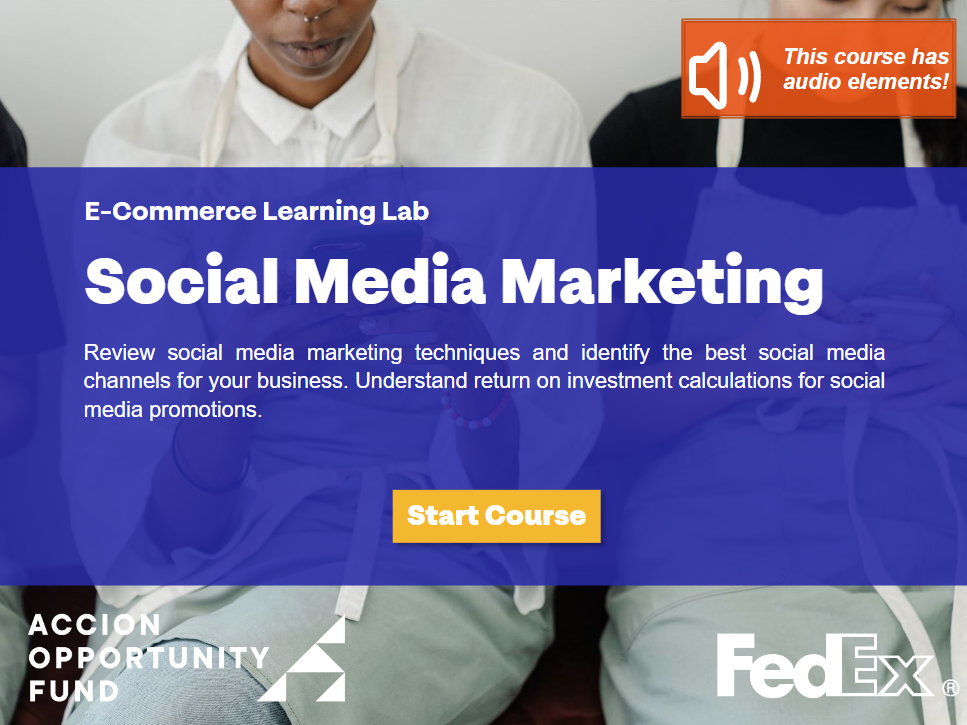Marketing Tips for Your Small Business
Marketing your small business doesn’t have to be expensive or complicated. Here are some effective ways to market your business for free.

Part of running a successful business is spreading the word about how fantastic your business is. But no matter how terrific your business is, it won’t succeed without customers or clients to buy your products or use your services. Therefore, proper marketing is a vital skill all entrepreneurs must learn.
Some people make a career out of marketing, but you already have a career – your business! The good news is that marketing doesn’t have to be intimidating or expensive and you can handle it yourself. Not sure how to get the word out about what you do? Start with these simple marketing tips for small business entrepreneurs.
Start With A Budget
You budget for your supplies, your rent, and other business necessities. Marketing is no different. A budget will force you to critically evaluate the worth of each marketing product or effort. Assign a specific dollar amount toward all marketing costs and stick to that number.
You’ll also need to keep tabs on how your marketing efforts are paying off so that you can adjust your budget regularly. If you find that one message or channel is more effective, you can devote more marketing dollars in that direction. On the flip side, you can abandon unsuccessful marketing efforts so you’re not wasting any cash.
Do Your Homework
Before you begin any active marketing efforts, you need to know who you’re marketing to. Who are your customers? What do they want? What’s the scope of the local competition? What do you share with competitors? On the flip-side, what sets your business apart?
Answer these questions with the goal of creating a targeted, focused marketing campaign. Research shows that focused marketing to a specific niche is more effective than marketing to the general population. Take the time to learn about your audience, so that your efforts will find them and appeal to their wants and needs. That’s how you create your “customer profile” and it’s how you’ll direct your marketing efforts and your business plan.
As part of this background research, you’ll want to check out what types of marketing are best suited to your target customer. For example, maybe your product is aimed at teenage girls and you find that they use Instagram more than any other type of media – that means you can devote a larger portion of your efforts to marketing through Instagram. Much of that information is available online with some careful Google-ing.
Once you know your target market and your message, it’s time to figure out how to bring them together.
Define Your Brand
Brand messages are powerful. Only you, the owner and creator of your small business, knows what it is about your business that makes it stand out. Focus on clarifying your brand message and designing a clear, strong brand image to appeal to your customers or clients. This goes hand in hand with figuring out your target market – your brand message should be designed to attract those customers. That includes your logo, tag line, and even the color scheme of your marketing materials.
Once you’ve created a brand identity, make sure it stays on-message and consistent no matter which form of marketing you’re using. For example, you’ll want your Facebook marketing efforts to mirror what you post on Instagram and what your sales fliers say, as well. Consistency across all forums develops audience recognition and trust.
Get Online
In 2016, if customers or clients can’t find you online, they won’t find you in real life. You need a professional, mobile-responsive website so your customers or clients can to learn about you, your brand, and if relevant, and purchase your products. Your marketing efforts can start here – create a website that really represents your brand and point all of your other campaigns here. This is one of the most important marketing tips for small business owners – even if you run a brick & mortar store, your website is crucial to your business’s success.
If you don’t have a functional website, there are free options available online. You can use templates from sites like WordPress and SquareSpace to create a professional site without any coding knowledge. You can also choose to hire a designer and web developer to create a unique site that’s customized to your brand and your message.
The Power Of The Blog
Creating a blog is a great way to keep your customers updated on your business and keep them interested in what you’re doing. It can also help you establish yourself as an industry influencer, which will help your website perform better in search results when people go looking for your product or service.
You can also reach out to others in the industry and have them post on your blog or offer to guest-post on their blogs – that helps you get exposed to a wider audience of readers.
Note that blogging takes some time and it might not make sense for every business or every industry. You’ll have to decide if it’s worth your time and effort to post regularly. If your budget allows, you can also hire an agency or a freelance writer to handle your blog for you.
Go Social
Once you’ve established your website, it’s time to establish social media profiles for your business on all of the major platforms – Facebook, Twitter, Instagram, and any other platforms your customers might use. Then you need to use those platforms regularly to send out your marketing messages. When customers engage with your social media accounts, respond to them! That’s a great way to build interest and the only thing it costs is time. In essence, social media is free marketing! How great does that sound? Social media platforms were designed for the express purpose of reaching out and connecting with others – Marketing 101.
As with a blog, you can hire an agency or freelancer to manage your social media accounts and save you some time and effort, budget permitting.
Branch Out
Creating a website and becoming an active social media user are great ways to market your business, but you may also want to consider more traditional types of advertising. For example, you could run ads in a local newspaper or magazine, put up a billboard, or even do a TV commercial. As with any marketing effort, you’ll want to figure out where to get the most bang for your buck. That means choosing channels that are likely to reach your target audience and get them to buy your product or service.
Dig Into The Data
No matter what sort of marketing campaigns you’re running, you’ll want to keep track of their successes and failures. You can use Google Analytics to see how many people visit your website and what pages they looked at. Your social media accounts will show you how many people liked what you put up and how many people are following your business.
Keep track of that data so that you know what’s working and what isn’t and can adjust your efforts accordingly. Marketing isn’t a one-off thing, you’ll need to continually adjust and refine your efforts to make sure your target customers are getting your message and that it’s having the desired effect.
The Bottom Line
At its most basic level, marketing is simply making connections and spreading the word. Now you have the information you need to take our marketing tips for small businesses and get started with your own marketing campaign.









